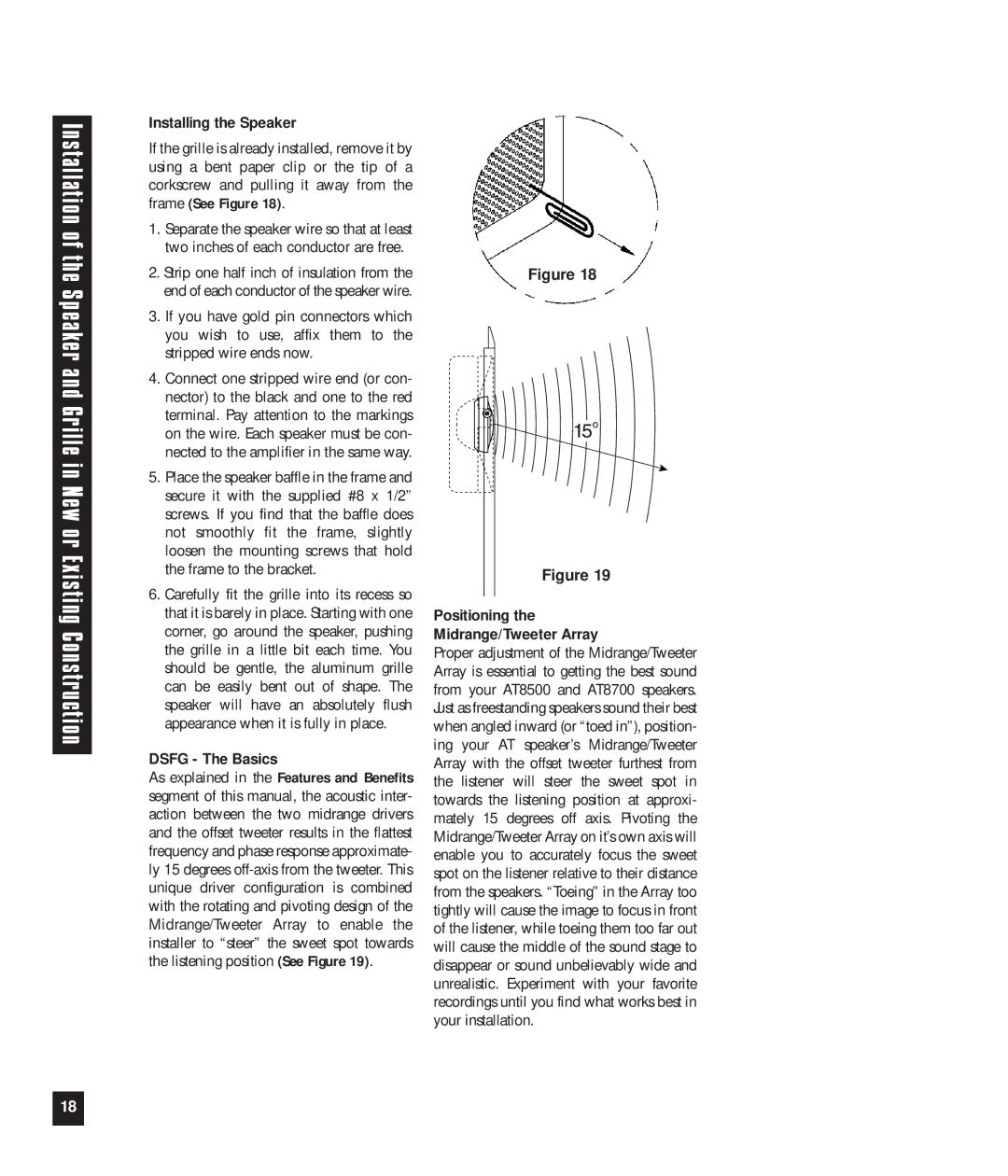AT8500, AT8700 specifications
Niles Audio, a renowned name in the audio industry, has introduced its AT series amplifiers, notably the AT8700 and AT8500 models. These amplifiers are designed to deliver high-performance audio for residential and commercial installations, ensuring an enhanced listening experience for users.The Niles AT8700 is a powerful 8-channel amplifier capable of delivering a robust 70 watts per channel into 8 ohms. This strength allows it to drive multiple speaker systems effortlessly while maintaining audio clarity and fidelity. Ideal for larger home theaters or multi-room audio setups, the AT8700 offers advanced features such as a unique auto-sensing technology that powers the amplifier on and off as needed, conserving energy and simplifying use for consumers.
On the other hand, the Niles AT8500, while slightly less powerful, also offers 50 watts per channel into 8 ohms across 8 channels. The AT8500 provides sufficient amplification for most residential needs and comes loaded with features aimed at optimizing audio distribution across various environments. Its flexible configuration allows users to customize speaker zones, providing the ability to enjoy different audio sources in multiple rooms simultaneously.
Both models boast a compact, rack-mountable design, making them easy to integrate into existing AV setups or new installations. The AT series amplifiers are also equipped with signal sensing inputs, allowing them to respond to audio signals effectively, and ensuring that they are only active when needed. This is not only efficient but also helps to extend the lifespan of the unit.
In terms of connectivity, both amplifiers provide numerous options, including balanced inputs for professional-grade sound quality, as well as standard RCA inputs for compatibility with a variety of audio sources. This versatility enhances their appeal for both home and commercial use.
Some additional standout features include built-in protection circuits that safeguard the amplifiers from overheating and short circuits, ensuring reliability in performance. Furthermore, their low profile and sleek design add an aesthetic appeal, allowing them to blend seamlessly with modern home entertainment setups.
In conclusion, the Niles Audio AT8700 and AT8500 represent a compelling choice for anyone seeking durable and powerful amplifiers. With their impressive power output, sophisticated features, and high-quality build, these models continue the Niles legacy of providing exceptional sound solutions to audio enthusiasts and professionals alike. Whether for a dedicated home theater or a multi-room audio system, these amplifiers deliver both performance and versatility, making them a standout option in the competitive amplifier market.

